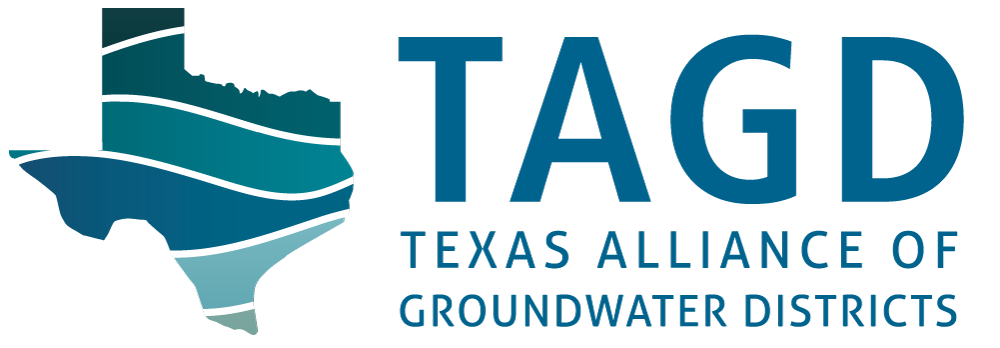Cow Creek GCD
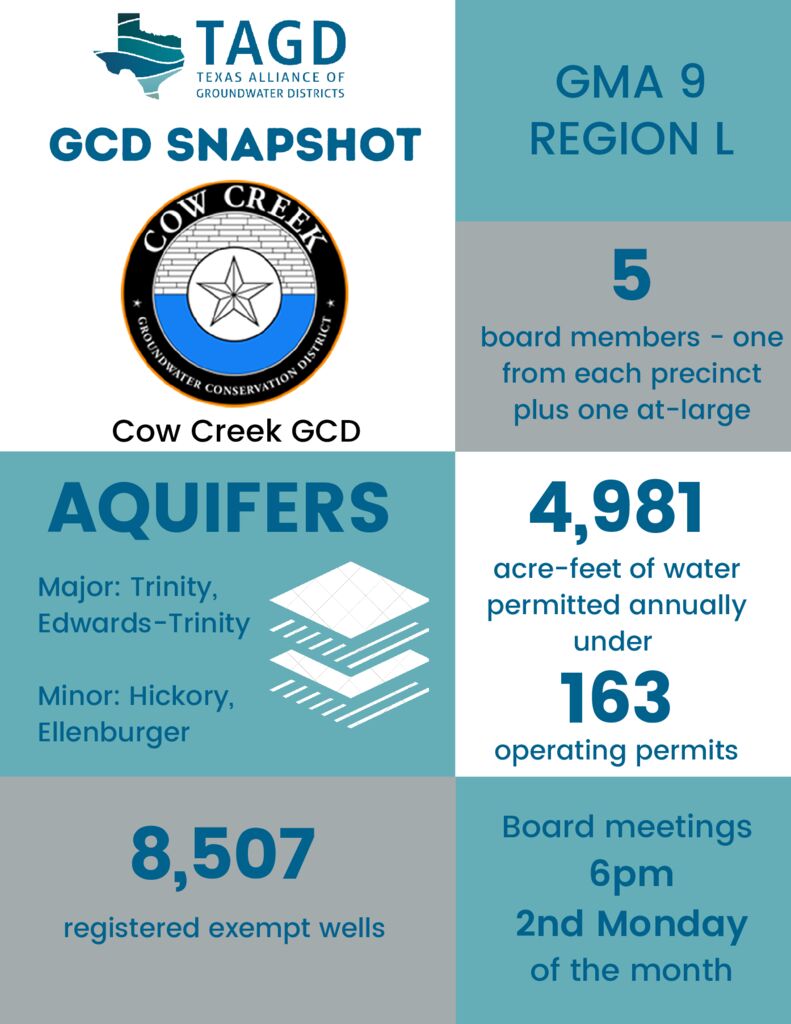
A small but mighty district in the rapidly growing Hill Country region, Cow Creek Groundwater Conservation District is committed to managing groundwater with a focus on public outreach and science. Cow Creek GCD covers Kendall County, over 660 square miles of rolling land bisected by the Guadalupe River. The biggest city in the county is Boerne, with a population of about 20,000.
The Texas Water Development Board included the present-day Cow Creek GCD when it designated the Hill Country Priority Groundwater Management Area in 1990. A temporary district was created in 1999, ratified as a permanent district by the Texas Legislature in 2001, and Cow Creek GCD was confirmed by voters in 2002. Micah Voulgaris has managed the district from the beginning, and currently serves alongside an office manager and groundwater technician.
Public education and outreach
Many GCDs are met with skepticism and confusion when they first begin to register wells and regulate groundwater. Cow Creek GCD was no exception, and got off to a rocky start with an annual fee schedule that groundwater users found difficult to understand. This highlighted the critical role of public education and outreach, and the Cow Creek GCD board decided to prioritize outreach to spread the message about the district and its rules. The board created an education committee to lead this charge, and has continued to keep education and outreach at the forefront of the district’s activities.
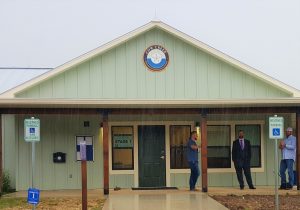
Staff and board members gather outside the Cow Creek GCD office on a rainy day.
Cow Creek GCD also recognized the importance of maintaining a comprehensive website early on. “The more information we can get out there, the easier our job is. When people have questions, we want them to be able to go to the website and quickly find out everything they need to know, whether it’s about the district’s creation, recharge, how the aquifer works,” says Micah Voulgaris. In 2014 the district developed a series of videos about rainwater harvesting, as well as a video that describes how the Trinity Aquifer works in Kendall County. These videos have garnered over 7,000 views on the Cow Creek GCD website and on YouTube, and have certainly increased knowledge of groundwater and water conservation in the community. You can watch the videos here. The district also publishes a bimonthly Aquifer Watch report and graphic that are shared in the local newspaper and on the district’s Facebook page.
Aquifer science
Cow Creek GCD has invested in aquifer science to ensure that water users can have utmost confidence in the district’s management of the area’s groundwater resources. The geology of the Trinity aquifer in Kendall County is unique because it is highly compartmentalized and has varying permeability. The district must also consider the surface water and groundwater interactions – if too much groundwater is pumped, the headwaters of Cibolo Creek could experience a decrease in spring flow or even go dry. Similarly, if the Guadalupe River is below median flow, recharge to the Trinity aquifer is limited. Since these areas are so sensitive to recharge, drought management can impact the aquifer more directly. To that end, the district continues to explore the best options for determining drought triggers and restrictions.
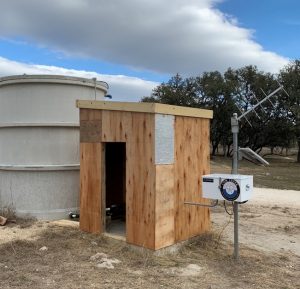
Cow Creek GCD’s Greco Bend monitor well
All of these factors and more add to the complexity of managing the groundwater resources, but Cow Creek GCD has risen to that challenge by collecting and using data to drive its decision making. To look at the full picture of the county’s water resources and accurately determine the drought stage, Cow Creek GCD relies on data from 42 monitor wells, stream gauges on Cibolo Creek and the Guadalupe River, and over 100 rain gauge sites throughout the county. Fifteen of the monitor wells were developed in partnership with the Texas Water Development Board – the district helped pay for the stations and conducts regular maintenance. The district has also started to study evapotranspiration through the daily monitoring of three evapotranspiration gauges. This supplemental data may eventually become part of the district’s drought index.
The Trinity aquifer is highly studied, and the designation of the area as a Priority Groundwater Management Area was based on extensive research and modeling data that the district has been able to draw from since its creation. Cow Creek GCD completed a review of the Hill Country Trinity Aquifer Groundwater Availability Model during the first round of joint planning to ensure that the district and the Groundwater Management Area fully understood potential impacts of pumping and recharge. The district also completed a study in partnership with Headwaters GCD to determine the feasibility of aquifer storage and recovery in the Ellenburger aquifer.
Sustainable development
Exempt domestic wells make up the majority of water use in the district, followed closely by public water systems serving cities and subdivisions. This is likely to continue, as the population of Kendall County is expected to double in the next 50 years. Ensuring that there are sufficient water resources available to meet the demands of this booming growth requires careful groundwater management.
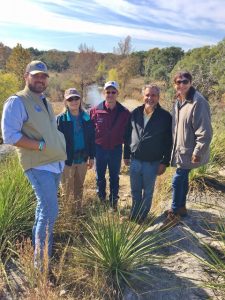
Cow Creek GCD manager Micah Voulgaris takes consultants and guests on a tour of the district’s sink holes.
The district has promoted sustainability by adopting comprehensive rules with production limits, well spacing, and well construction standards that all serve to protect the quality and quantity of the groundwater resources. Cow Creek GCD rules limit well density to one well per six acres, on tracts no smaller than six acres, which has kept subdivision development in check in this popular Hill Country destination. Impervious cover that often accompanies development can increase non-point source pollution in the runoff that eventually recharges the aquifer. As such, the district board has been proactive in working with the City of Boerne to encourage low-impact development through the adoption of a Unified Development Code that includes an ordinance that protects aquifer recharge features, and an ordinance relating to rainwater harvesting for potable and non-potable uses.
By engaging in scientific studies, sustainable development, and public outreach, Cow Creek GCD continues to be a great example of effective groundwater management. For more information about Cow Creek GCD, visit www.ccgcd.org and follow the district on Facebook and YouTube.
